1. Introduction
This article presents a descriptive analysis and discussion of the results of a survey on standardization in 2020 on advanced technologies [1].
When an advanced technological field emerges, the impact of standardization on the acceptance of that technology is of interest [2]. The relationship between economic growth and standardization brought about by technology is particularly of interest. For example, in photocatalysis, standardization is believed to play a major role in enhancing economic and academic value [3]. In discovering the Honda-Fujishima effect on photocatalysis [4], the international standardization of methods for measuring and evaluating photocatalytic performance contributed to the formation of a commodity market for photocatalysis. Furthermore, because of the formation of a commodity market for photocatalysts, the economic value of photocatalysis increased, leading to a further increase in the academic value of this discovery.
2. Standardization of Advanced Technologies
2.1. Artificial Intelligence Technology
This section presents the differences in the responses regarding the importance of standardization of artificial intelligence technology by industry (Tables 1 and 2). The survey asked about the importance of “artificial intelligence”. In the 2017-2020 results, about 36% of respondents indicated that standardization of artificial intelligence technologies is “important” or “relatively important”. Generally, these two categories are approximately 30%, indicating that awareness of the need for standardization of artificial intelligence has improved [1][5][6][7].
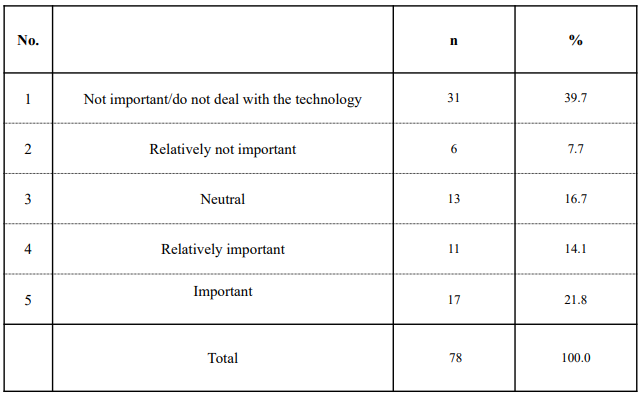
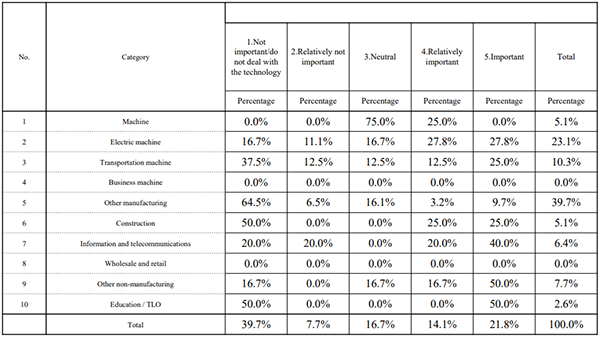
[Click to enlarge]
Table 3 lists the technical areas that are considered critical for the standardization of artificial intelligence technology. Performance evaluation, data format, and ethical aspects were considered the most important. These results indicate the urgency for benchmarks to evaluate the performance of artificial intelligence technologies. Products and services can be distinguished by setting standards for evaluating performance. Standardizing ethical aspects is important in order to prevent social and legal abuse of artificial intelligence technologies to establish trust in the technology.
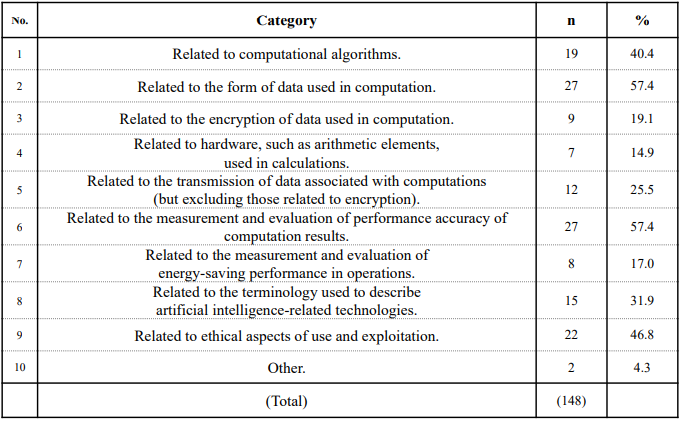
2.2. Quantum Computer Technology
In this survey, respondents were asked about the importance of standardization in reference to “quantum computer-related technology”. The percentage of respondents who answered “important” or “relatively important” was about 19% (Table 4), higher than around 14% in the previous year, but lower than the responses for standardization of artificial intelligence technologies. The increase in the percentage of respondents who answered “important” in 2019 may indicate a possible increase in the demand for the general marketization of quantum computing technologies [1][7]. The results for the industrial sector are presented in Table 5.
Standardization serves as a vehicle for effective technology collaboration across industry sectors and features of general purpose technology (GPT) [8] can be considered standardized technology.
GPTs can plays an important role in economic growth. Steam engines and electricity are examples [9]. Considering that the progress of standardization coincides with the transition to GPT, the rising need for standardization of quantum computer technologies may suggest that this technology is becoming equipped to function as a GPT.
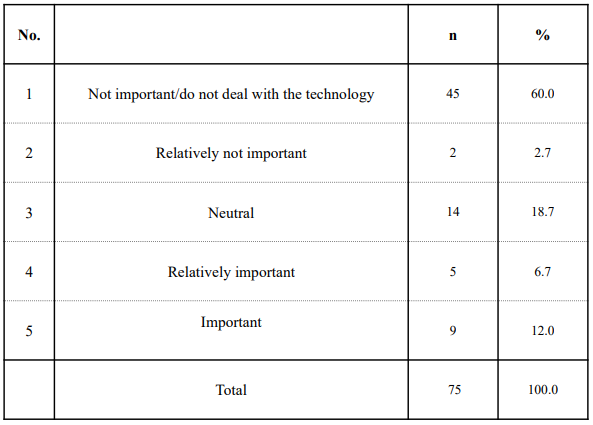
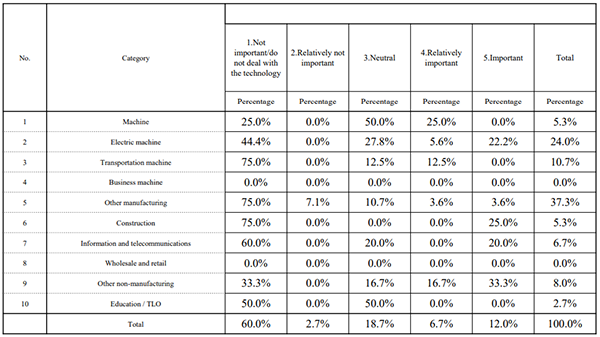
[Click to enlarge]
Methods of evaluating performance, terminology, and computational algorithms are considered the main areas in which standardization is important. Methods of evaluating performance allow for performance comparisons between different quantum computers. Standardized terminology plays an important role in the communication of new technological concepts. For example, when nanotechnology emerged as a new technology, the basic terminology used to describe it was standardized [2]. The need for the standardization of computational algorithms indicates that efficient algorithms for this technology are being sought.
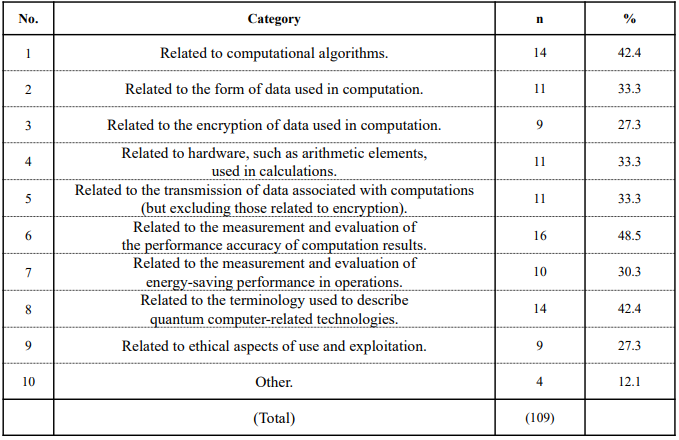
3. Conclusion
Identifying, developing, and disseminating technologies that will lead to economic development in this new era are important policy issues. Given that GPT is considered technology that leads to economic growth, to foster such technology, research and development beyond the traditional framework of industries is important from a policy perspective. Today, joint projects are being undertaken across industries, such as electric vehicles. Standardization also enables the cross-disciplinary use of technology, which is a feature of GPT. This function of generalizing technology is considered an important economic function of standardization that has yet to be emphasized, and which can increase economic growth.
Acknowledgments
I would like to express my sincere appreciation to those who made time to respond to survey requests despite their busy schedules and to all those who cooperated in responding to the survey. The study was supported by JSPS Grants-in-Aid for Scientific Research (15K03718, 19K01827, and 23K01529; Principal Investigator: TAMURA, Suguru). Because this remark is important academic information, the JSPS granting policy is appended as follows. “The views and responsibilities regarding research results resulting from a grant shall exclusively belong to the researcher; the implementation and publication of said research results are not based on requests from the Japanese government body that provides the grant or others. Namely, the research funded by Grants-in-Aid for Scientific Research shall be conducted under the individual researcher’s authority with the researcher’s awareness and responsibility.” (Handbook on Grants-in-Aid for Scientific Research Program [Japan Society for the Promotion of Science] [in Japanese]) (Note 3).
December 22, 2022
>> Original text in Japanese


